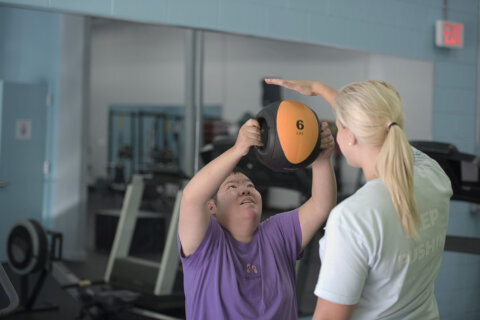After a year under lockdown practicing measures of diligent cleanliness, some might wonder whether immune systems not being bombarded have caused them to slow down. An expert from Johns Hopkins University School of Medicine in Maryland thinks not.
Dr. Stuart C. Ray, professor of medicine and oncology, based his theory on multiple areas of evidence.
“In general, the microbiome is very resilient; it’s very stable,” Ray said, of the plethora of organisms that live in and around bodies to help digest food, regulate immune systems and protect against other bacteria that cause diseases.
“In the absence of antibacterial treatment, it’s very stable,” he said.
Spending much of his professional career wearing masks and working with contagious diseases sparked Ray’s interest in the topic.
“Looking at the available literature, which isn’t huge, there’s really no evidence that microbiomes are altered by wearing masks,” Ray said.
“Wearing a mask certainly does not sterilize the mouth, and the few studies that have been done suggest that the microbiome is not altered in the mouth by wearing a mask. So, it doesn’t seem plausible that wearing a mask would alter our state of immunity,” Ray said.
Also of note: Immune systems have long memories.
“Our immune systems are robust after we get out of childhood, and they become more and more mature. But the beauty of the immune system is it has long memory,” he said.
The memory response of the immune system means, for example, that someone who had mumps as a 4-year-old would still be immune to it much later in life.
“Fifty years later, I still have those memory cells for the mumps virus, and if it comes back, I’ll be protected — and that’s true of many other pathogens,” Ray said. If someone has been vaccinated for hepatitis B, for example, and ever had a good immune response, even if the antibodies for hepatitis B wane, they’re protected for life.
The coming year should offer insight into whether coronavirus vaccines offer durable immunity against COVID-19.
“Right now, all the evidence points to good memory responses to previous exposures and that goes for all of us who’ve been wearing masks for the past year,” Ray said.
As for the so-called hygiene hypothesis that allergies may be more common in the modern world because people are less exposed to a variety of pathogens?
“There’s some credibility there, but it’s not proven. It’s a notion,” Ray said.
What about the flu? How might unintended consequences from COVID-19 change influenza’s impact on society?
There’s a chance that coming off a mild 2020-2021 influenza season could be setting up a situation ripe for something more severe next season.
“It’s a reasonable thing to wonder about because having the flu causes people to develop immune responses to the flu,” Ray said.
“All the things that we’ve done to try to reduce the spread of coronavirus have also helped with the flu. Maybe we’ll be at risk for a worse flu season next year,” he said.
Fortunately, flu shots offer protection.
“We know the flu vaccine has efficacy. It’s not perfect and maybe our learnings from coronavirus vaccines will help us make a better flu vaccine,” Ray said.
“In the meantime, though, I think one of the lessons is, let’s be more intentional about getting vaccinated for the coming flu season because we might help protect against that.”
- Sign up for WTOP alerts
- Sign up for WTOP’s coronavirus email newsletter
- Latest coronavirus test results in DC, Maryland and Virginia
- Coronavirus vaccine FAQ: What you need to know
- Latest vaccination numbers in DC, Maryland and Virginia
- Montgomery Co. eases more restrictions after 60% of residents get 1 COVID-19 vaccine shot
- ‘Slice’ of life after new CDC guidance: Alexandria pastry shop embraces optional mask wearing
Looking for more information? D.C., Maryland and Virginia are each releasing more data every day. Visit their official sites here: Virginia | Maryland | D.C.








